Award-winning chef breathes new life into complex, forgotten dishes to cater to contemporary foodies' tastes, Li Yingxue reports.
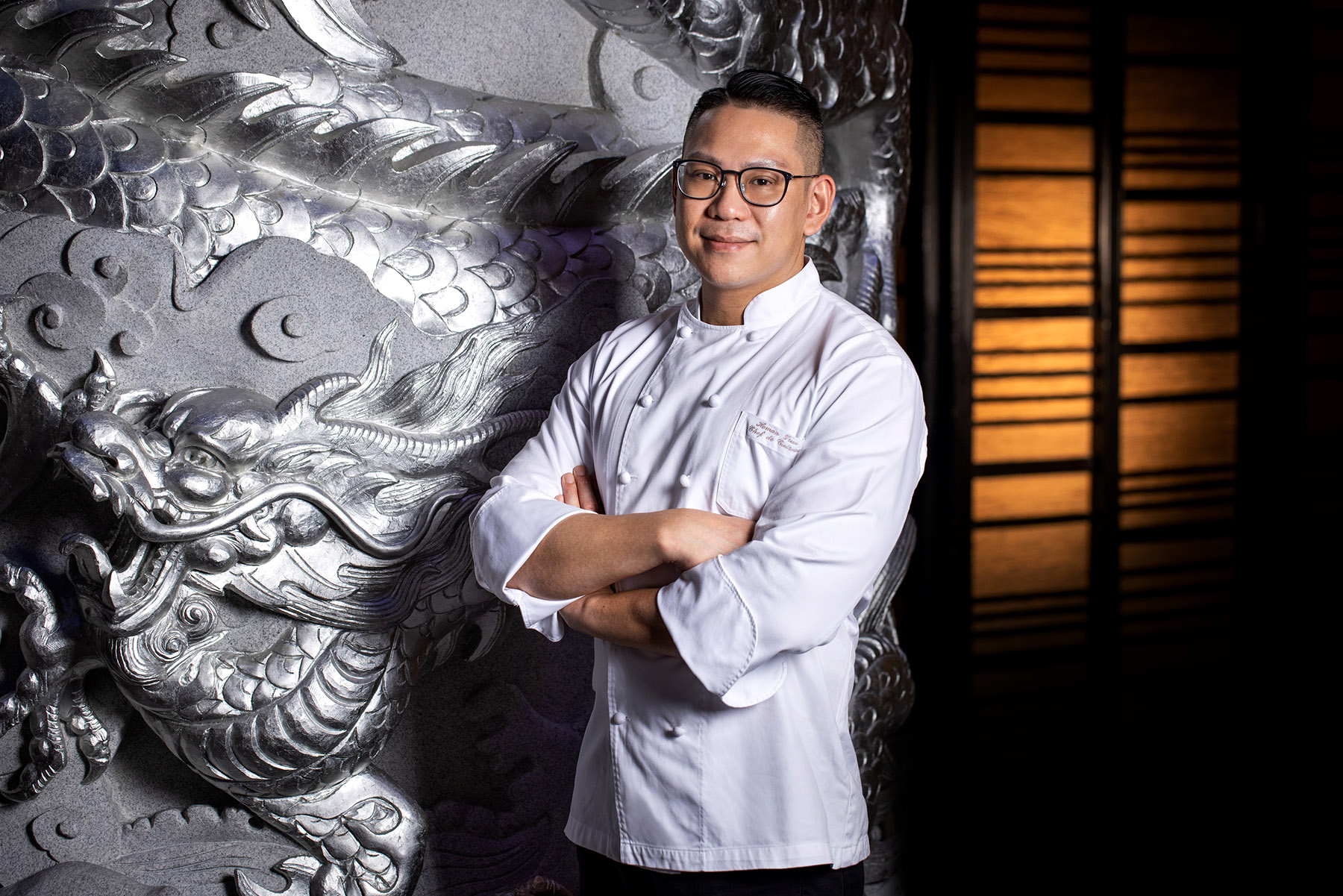
Once a Lingnan (a region encompassing Guangdong and Hainan provinces, the Guangxi Zhuang autonomous region, and parts of Yunnan and Fujian provinces) showpiece, Baihua Chicken vanished from menus, too complex and unprofitable to make. Skinned whole and stuffed with shrimp mousse, it was dubbed "chicken without the chicken", a dish chefs feared for its precision.
One wrong cut could ruin it all, but Hong Kong-born chef Homan Tsui, 43, returned the forgotten classic back onto the menu.
At MGM Macau Hotel's Imperial Court, he deep-fries the chicken skin to a golden crisp. Traditional honey is swapped for maltose syrup while the skin is bathed, air-dried, and pressed into a caramel-tinted sheet, making it crisp, elegant, and irresistible.
Just before service, Tsui shaves freeze-dried horsehead fish, a local delicacy, over the hot skin, releasing a punch of umami that's as aromatic as it is flavorful.
Beneath the chicken, he lays a delicate "fishing net" handwoven from dandan — a wheat snack that gets its name from the wooden or bamboo baskets from which street vendors sold them in ancient times — noodles as a nod to Macao's seafaring heritage. Droplets of yellow plum sauce are dotted across the net, offering a bright, tangy dip that rounds the dish out with refreshing balance.
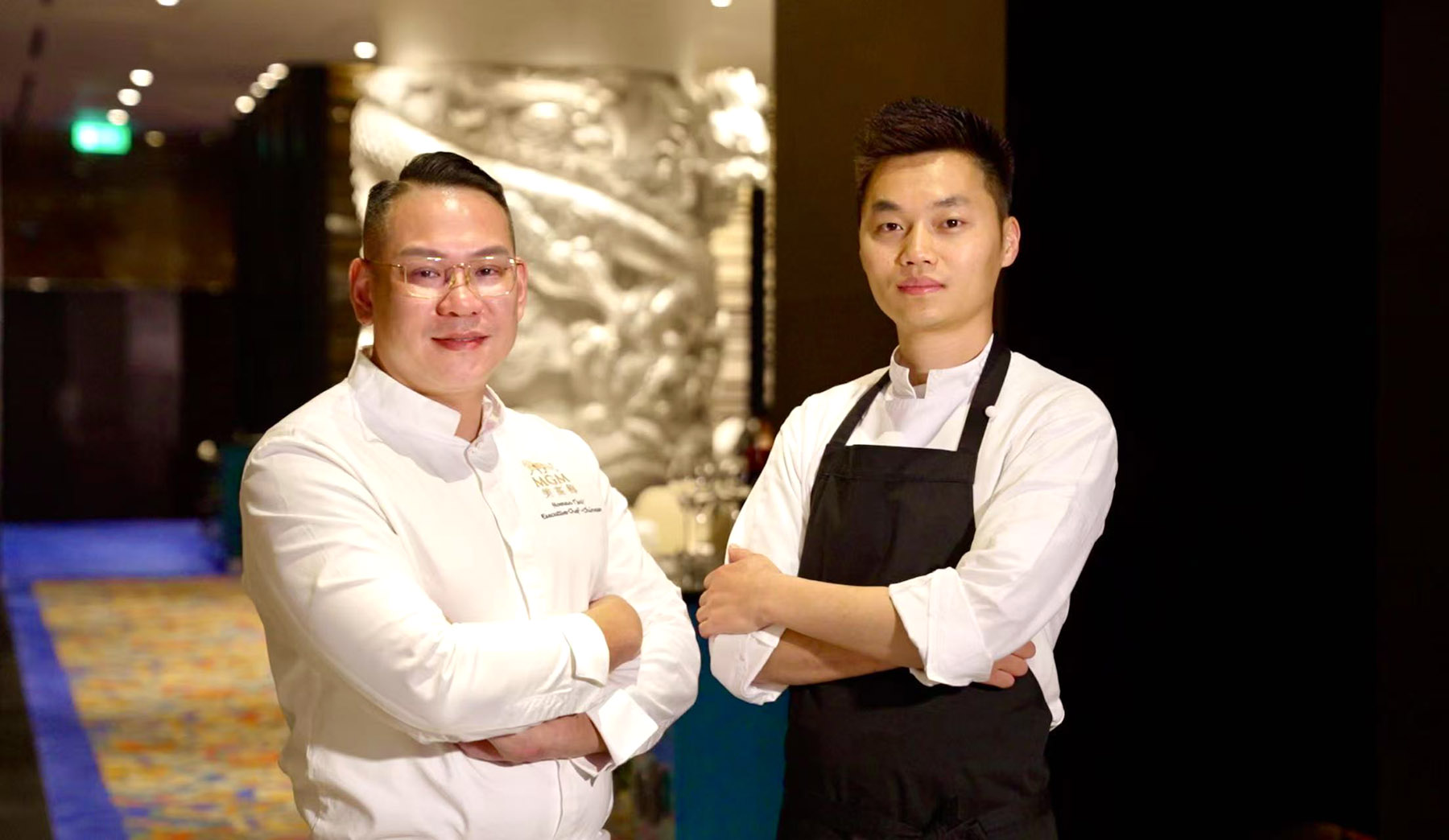
The reinvention of Baihua Chicken gained early attention when it appeared in season four of the food documentary series Once Upon A Bite. Diners began chasing the dish they saw on their screens, but that was only the beginning, Tsui says. He continuously refines every element with discipline and vision.
In 2025, his efforts paid off. Tsui's Lingnan Crispy Chicken Skin with Shrimp Mousse and Salted Fish Flakes won the coveted Annual Dish Award at the Black Pearl Restaurant Guide Awards for Hong Kong, Macao and Overseas Regions.
"Reviving a forgotten dish takes obsession and persistence," Tsui says. "We treat it as a team effort, where every detail counts. It's the only way to uphold the standard."
"What began as an obscure, old-school recipe is now a signature item every guest asks for. It took time, risk, and heart."
He also credits his behind-the-scenes team for their unwavering support and selfless dedication: "It's a shared victory."
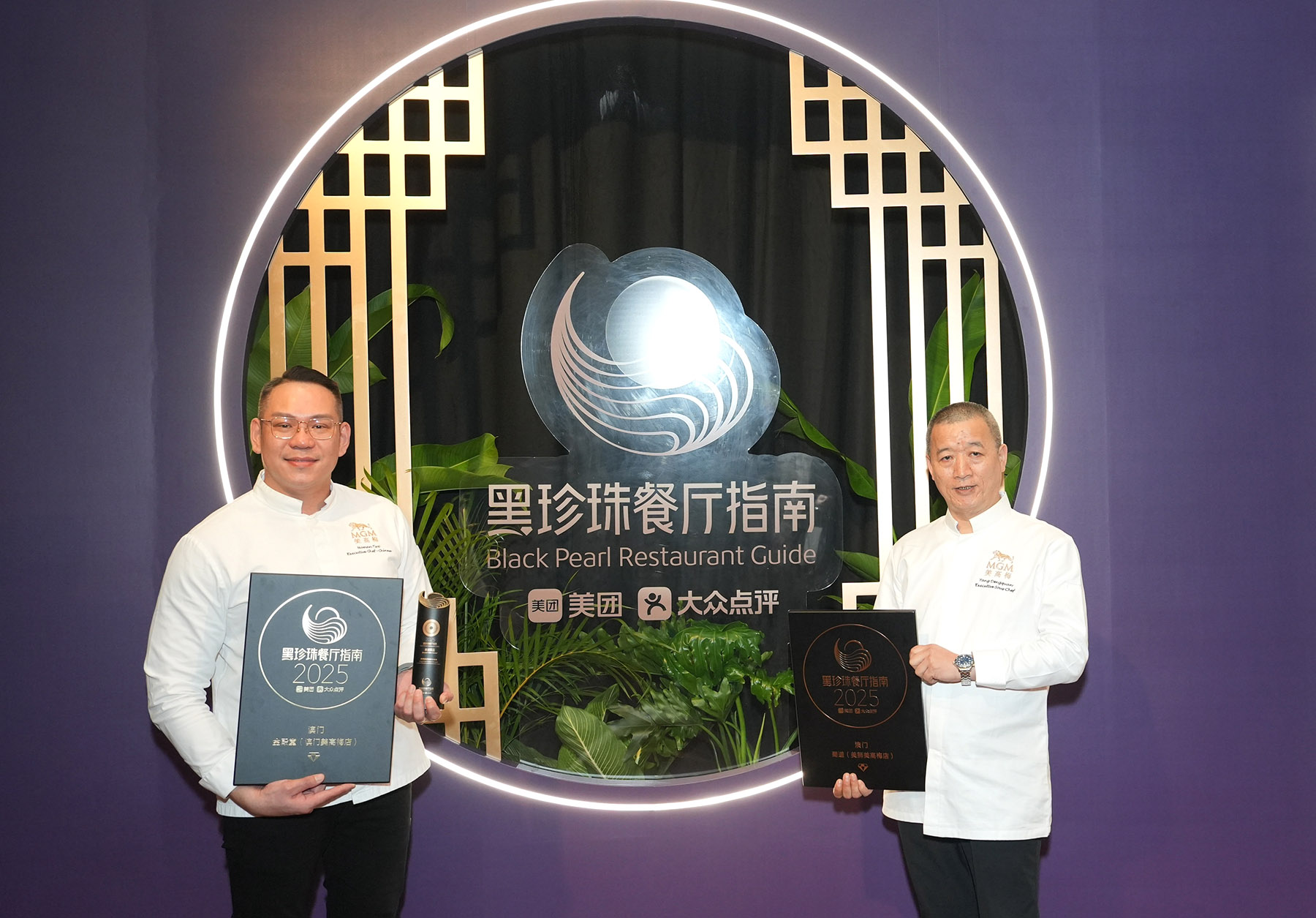
For Tsui, this award-winning dish is more than a culinary feat, it's also a tribute to Lingnan heritage and a love letter to the cuisine he has spent years mastering. The Imperial Court also earned a prestigious One-Diamond rating in the 2023-2025 Black Pearl Guide.
Meituan's vice-president Wei Wei notes that Black Pearl Restaurant Guide selections are based on Meituan and Dianping's vast databases of consumer behavior and user reviews. The process is supported by a professional judging system, now enhanced with AI technology to help uncover outstanding restaurants worldwide more efficiently.
"Every Black Pearl restaurant represents the pinnacle of its culinary culture. We hope that, through food, Black Pearl can help global diners discover not only exquisite flavors but the cultural stories behind them," Wei says.
At the hotel restaurant, Tsui is known for more than just his celebrated Baihua Chicken; He has breathed new life into many nearly forgotten Lingnan dishes. The restaurant draws visitors from around the globe while also serving as a popular spot for locals to gather.
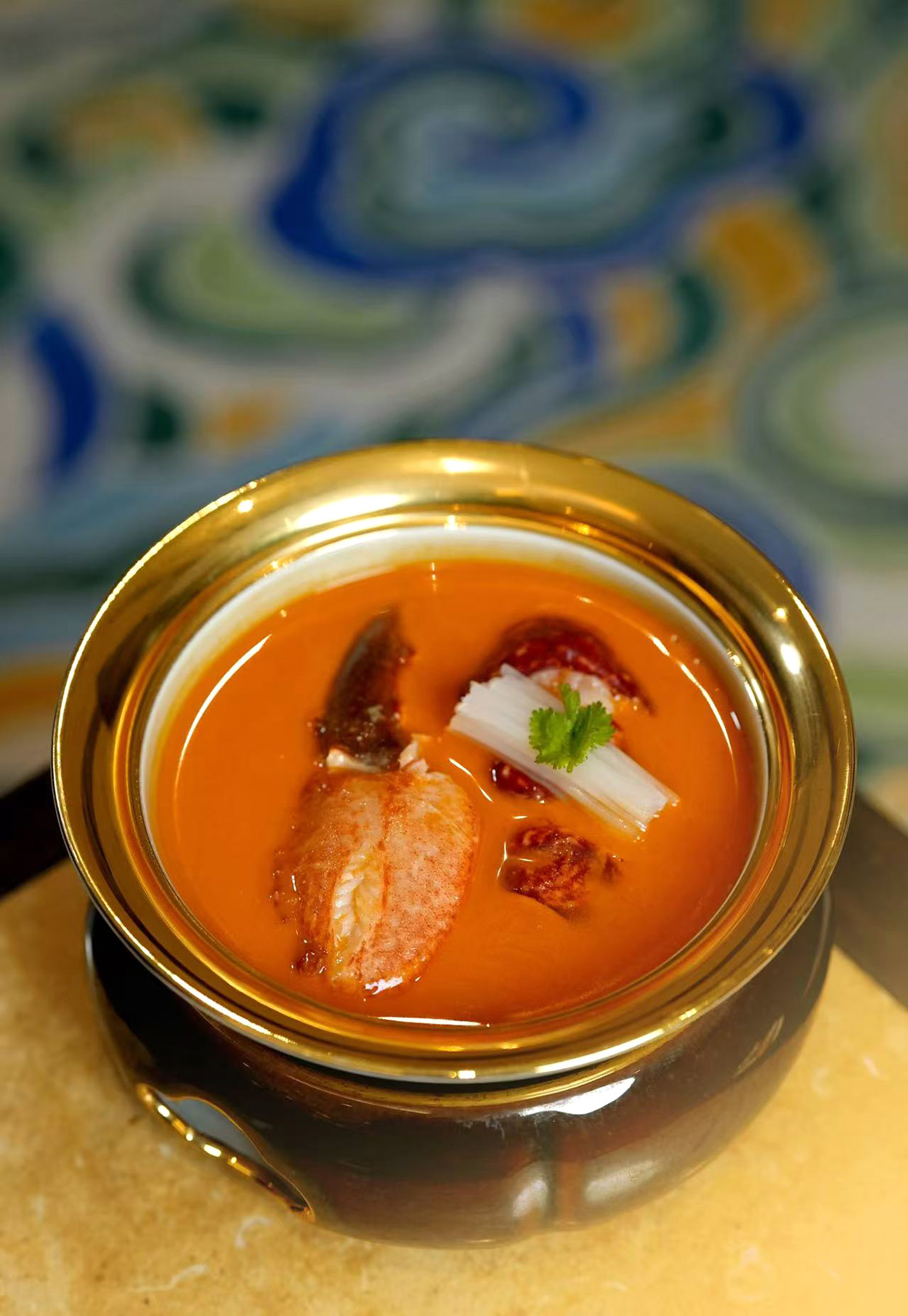
Devoted to the kitchen
Born and raised in Hong Kong, Tsui began working in kitchens at age 15 during summer breaks, boosting his interest in the culinary world. Over nearly 30 years, he has devoted himself to the kitchen.
After learning the art of dim sum, Cantonese, and Chaozhou cuisine in Hong Kong, he spent 13 years working in a local restaurant. He joined the Imperial Court restaurant in 2012, and 13 years later, he's still there.
At the restaurant, Tsui has revived many traditional Lingnan recipes with a fresh approach. His philosophy combines preserving traditional handmade Lingnan techniques with innovation.
"Whether Hong Kong, Macao or the Chinese mainland, the Cantonese dining scene is fiercely competitive. I wanted to set myself apart through handcrafted dishes, because the harder something is to make, the fewer people are willing to do it," he says.
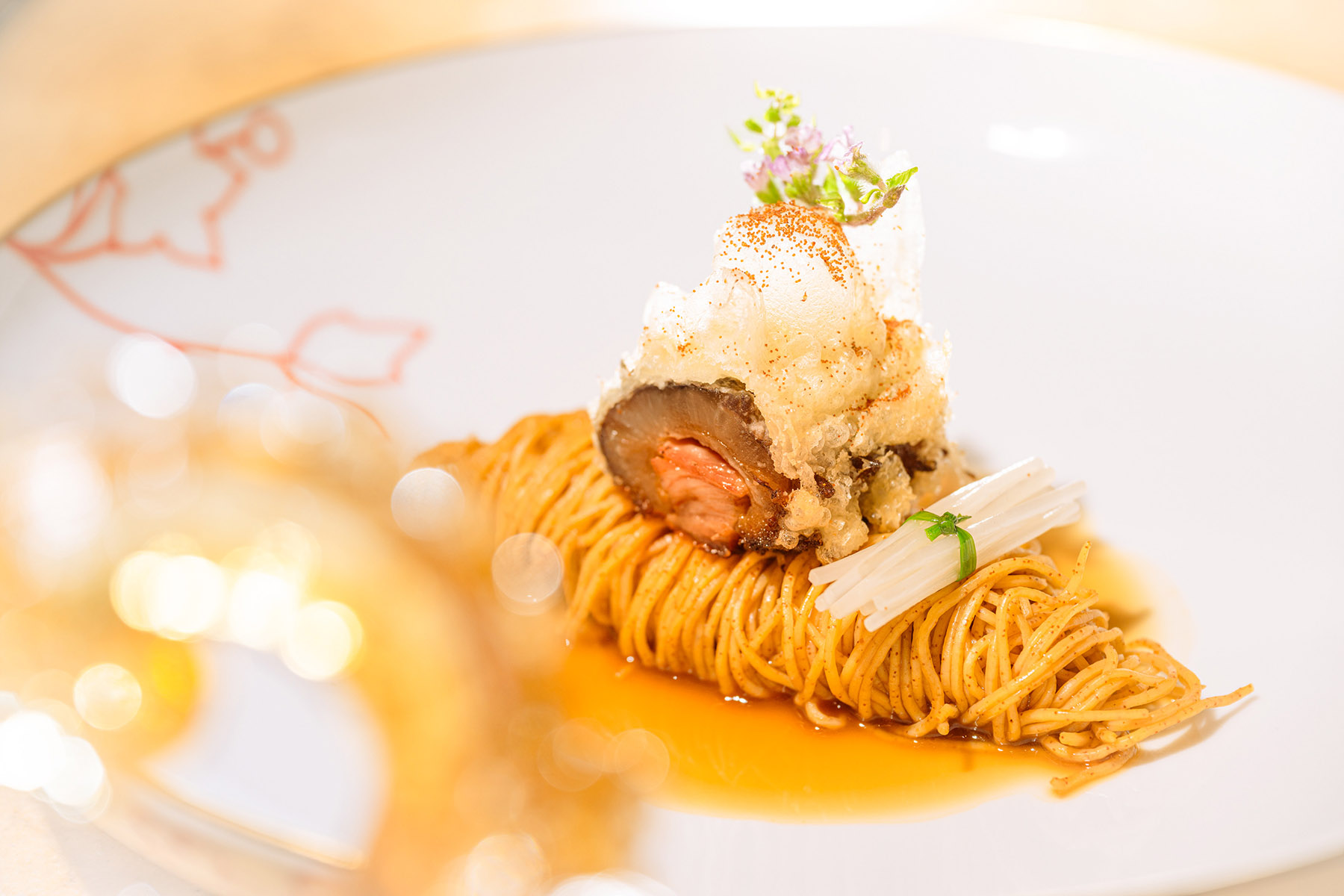
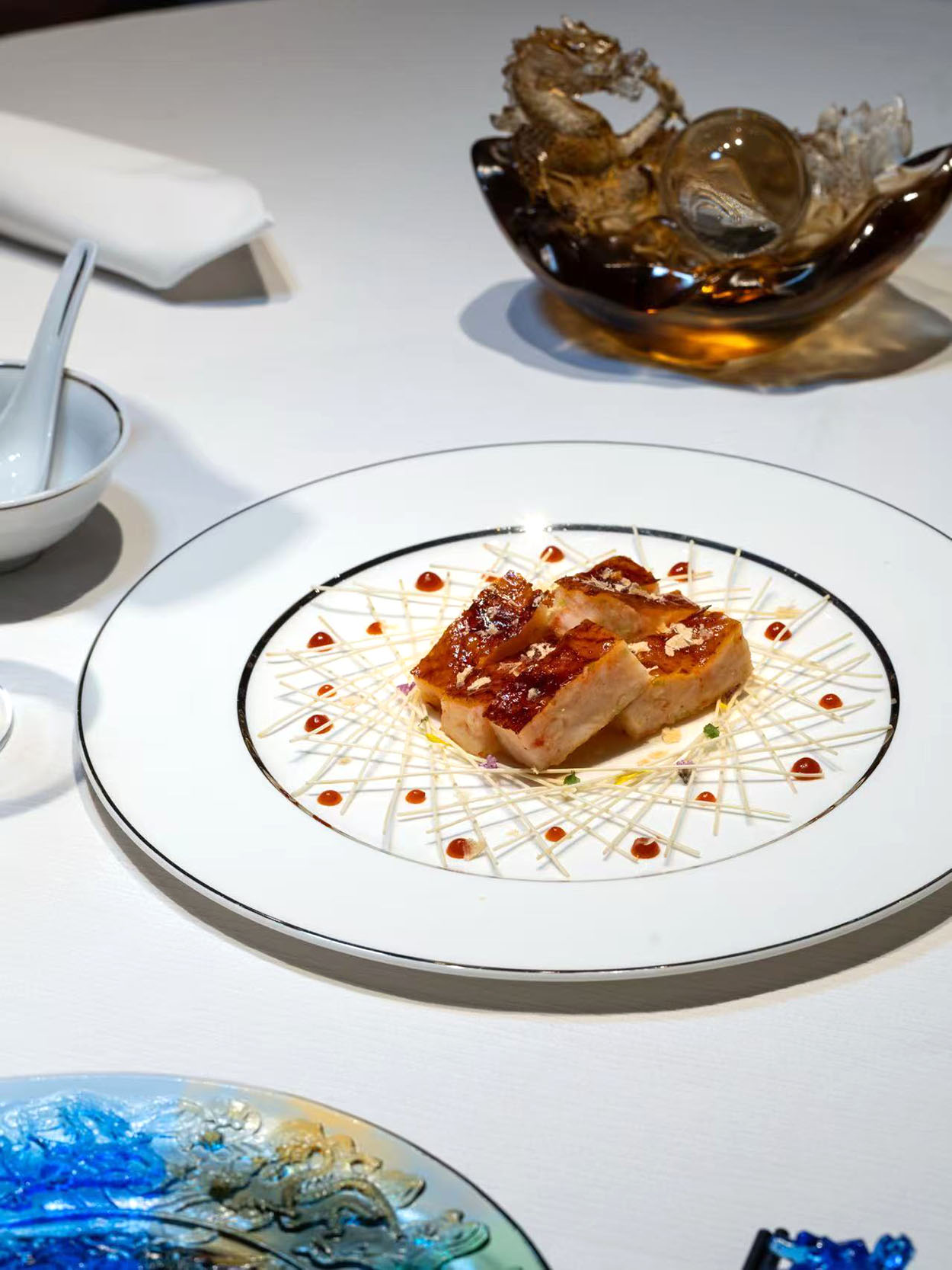
"Traditional craftsmanship deserves to be passed on. Some chefs may have worked for years, but they don't understand the old ways. I want to give these classic dishes new life."
That said, Tsui doesn't believe every traditional dish should be reinvented. In his opinion, each cuisine has elements that should be preserved and others ripe for innovation, be it ingredients, flavors or techniques. His focus on innovation lies mainly in seasonality and consistency.
"Times have changed. Some ingredients have become more expensive, and fewer people are skilled in traditional techniques, increasing the cost of handmade dishes.
"I invest time in research without worrying about cost. Once I've perfected a dish, I serve it within what I can manage. For a reinvented classic to work, my team must be able to deliver it consistently."
To Tsui, Lingnan cuisine is defined by its constant evolution, which tests a chef's true skills. "Doing something well today doesn't guarantee it will be the same tomorrow, so I adjust my techniques based on guest feedback and preferences."
Many of his dishes continuously evolve in flavor, technique and presentation. "Taste alone won't anchor a memory," Tsui says. "Guests can feel the care and thought you put into a dish. That's what stays with them."
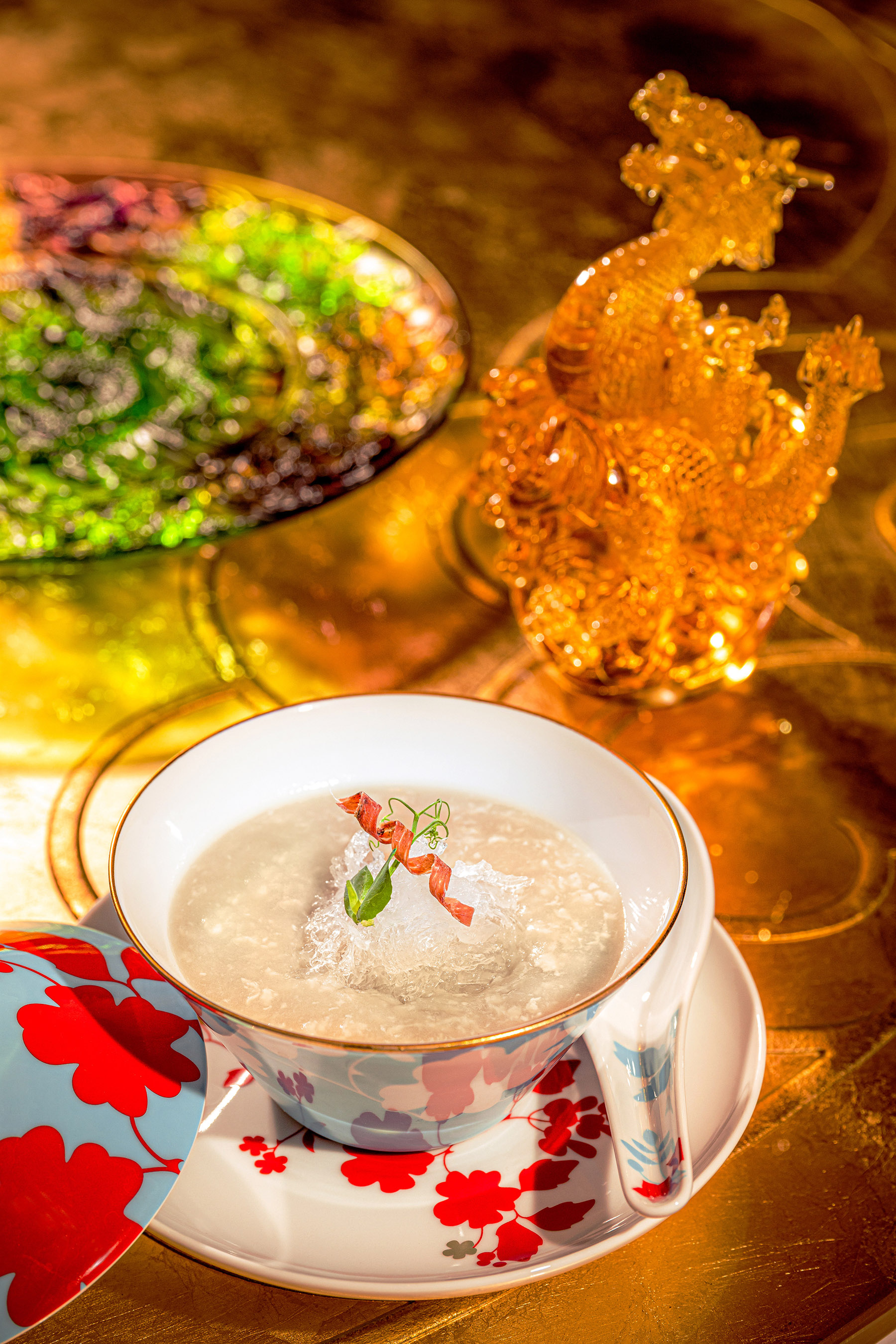
Fresh inspiration
In addition to his culinary research, Tsui actively collaborates with outstanding chefs from across regions, exchanging ideas and drawing fresh inspiration from these encounters.
Partnering with Michelin-starred chef Yang Yanbin from Chengdu, Sichuan province, in April, the two culinary masters created a limitedtime menu that paid tribute to the Maritime Silk Road.
Yang, a native of Quanzhou, Fujian province, specializes in the region's cuisine. His collaboration with Tsui sparked a creative synergy. Dishes like Blue Lobster with Satay Sauce and combinations featuring seaweed, yellow fungus and fresh conch emerged from their partnership.
"Working with Tsui was a real pleasure," Yang says. "We exchanged ideas, blended our ingredients and flavor profiles, and created this collaborative menu."
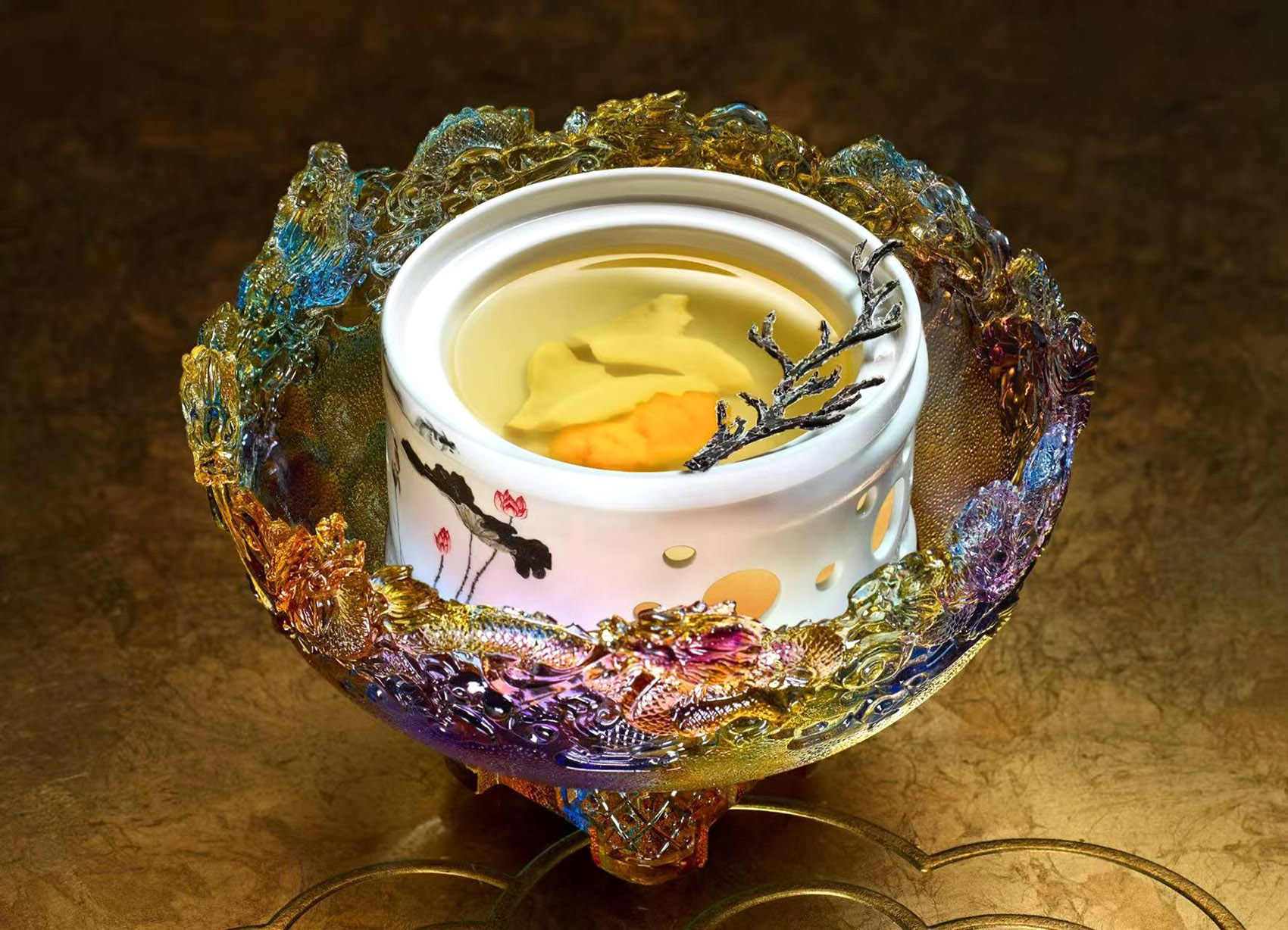
Food critic Hong Liang gave high praise to the menu. "In a single meal, land and sea delicacies were reimagined by master chefs from Fujian and Hong Kong," he notes. "Infused with the spirit of the Maritime Silk Road, each dish arrived at the table like a piece of edible art steeped in history and elevated by craft."
Tsui notes that joint menus like this allow him to learn from top chefs in other culinary traditions. "I learn something new every time."
He also brings his team members along on these collaborations, offering them valuable opportunities for growth and knowledge.
Beyond culinary innovation, Tsui also manages the kitchen team at the restaurant. When he moved from Hong Kong to Macao in 2012, he brought six of his team members. The team has grown to 23, with the original core forming its backbone.
"We've developed a strong chemistry. Often, I don't even need to speak; I just give a glance and they know what I want," he says.
In the kitchen, the team operates with calm precision, a rhythm Tsui has intentionally cultivated. He believes chefs must stay busy to keep their skills sharp and creative focus intact.
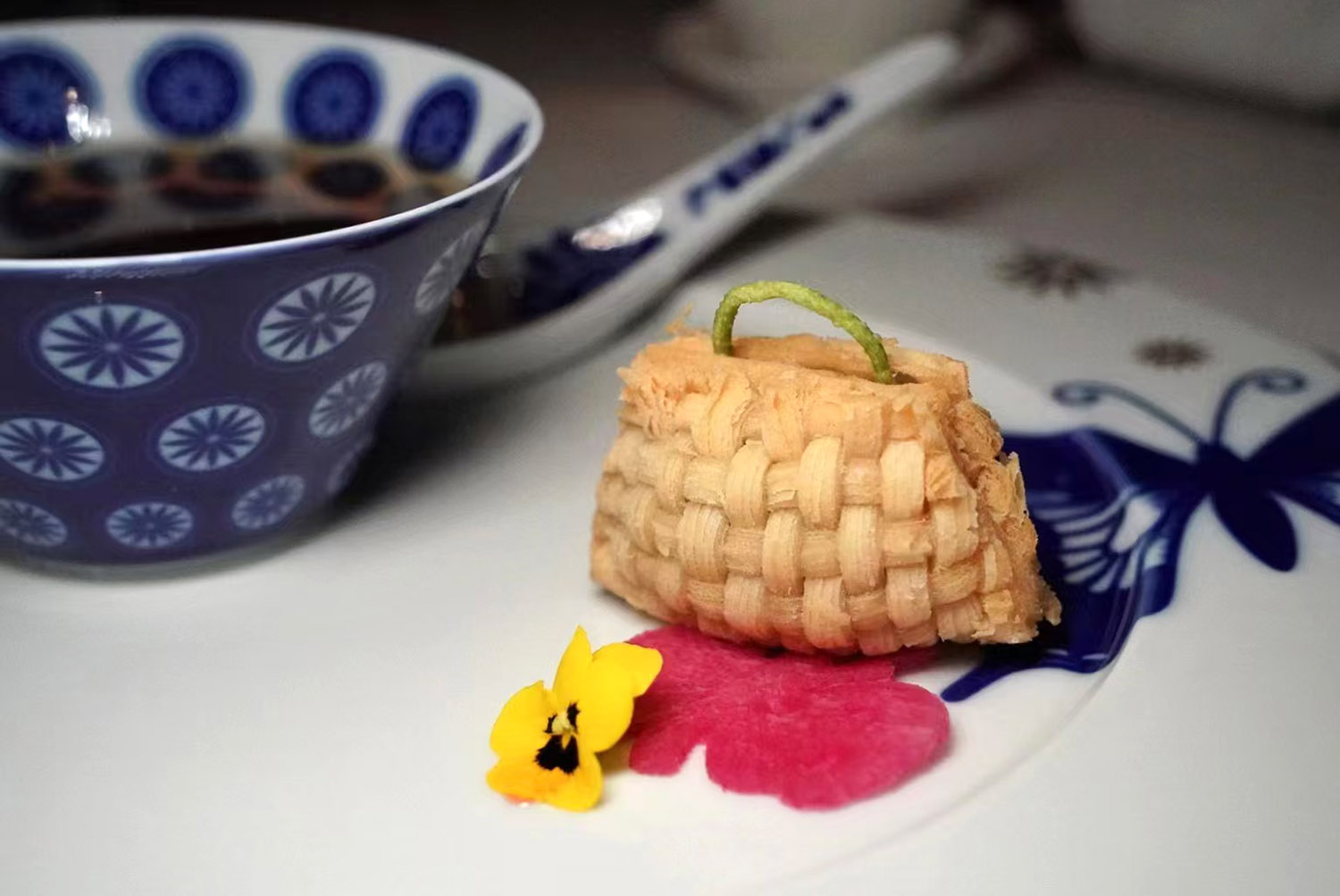
His insistence on handcrafted techniques also keeps the team constantly engaged. One dessert, for instance, features a handwoven handbag-shaped pastry, which is labor-intensive but always a showstopper. Tsui encourages his chefs to compete and grow, seeing mentorship as central to leadership.
He applies the same meticulous mindset to the hotel's banquet operations, which he oversees. Over the past decade, he has played a key role in national banquets marking the Macao Special Administrative Region's 15th, 20th, and 25th anniversaries of its return to the motherland.
Tsui's role has grown with each event — in 2015, he assisted on a few dishes; in 2020, he led the team; by 2025, he was in full command from planning to execution. For the 2025 banquet, Tsui directed a 70-chef team to serve eight courses to 600 guests in just 45 minutes.
Preparation began three months earlier, with detailed PowerPoint presentations, precise timelines, and staffing charts that underwent many revisions.
"Each banquet comes with higher expectations that we've finally met," Tsui says. "It's a shared achievement and a sign of how far the whole team has come."
Contact the writer at liyingxue@chinadaily.com.cn


